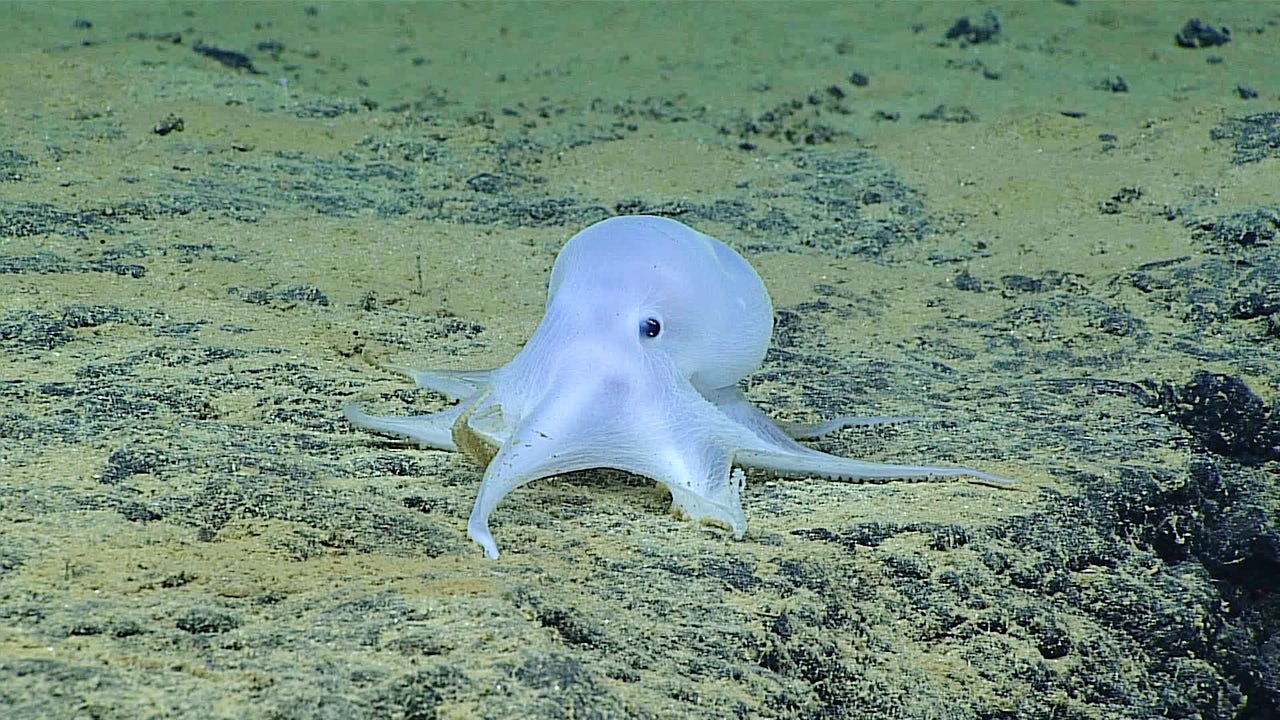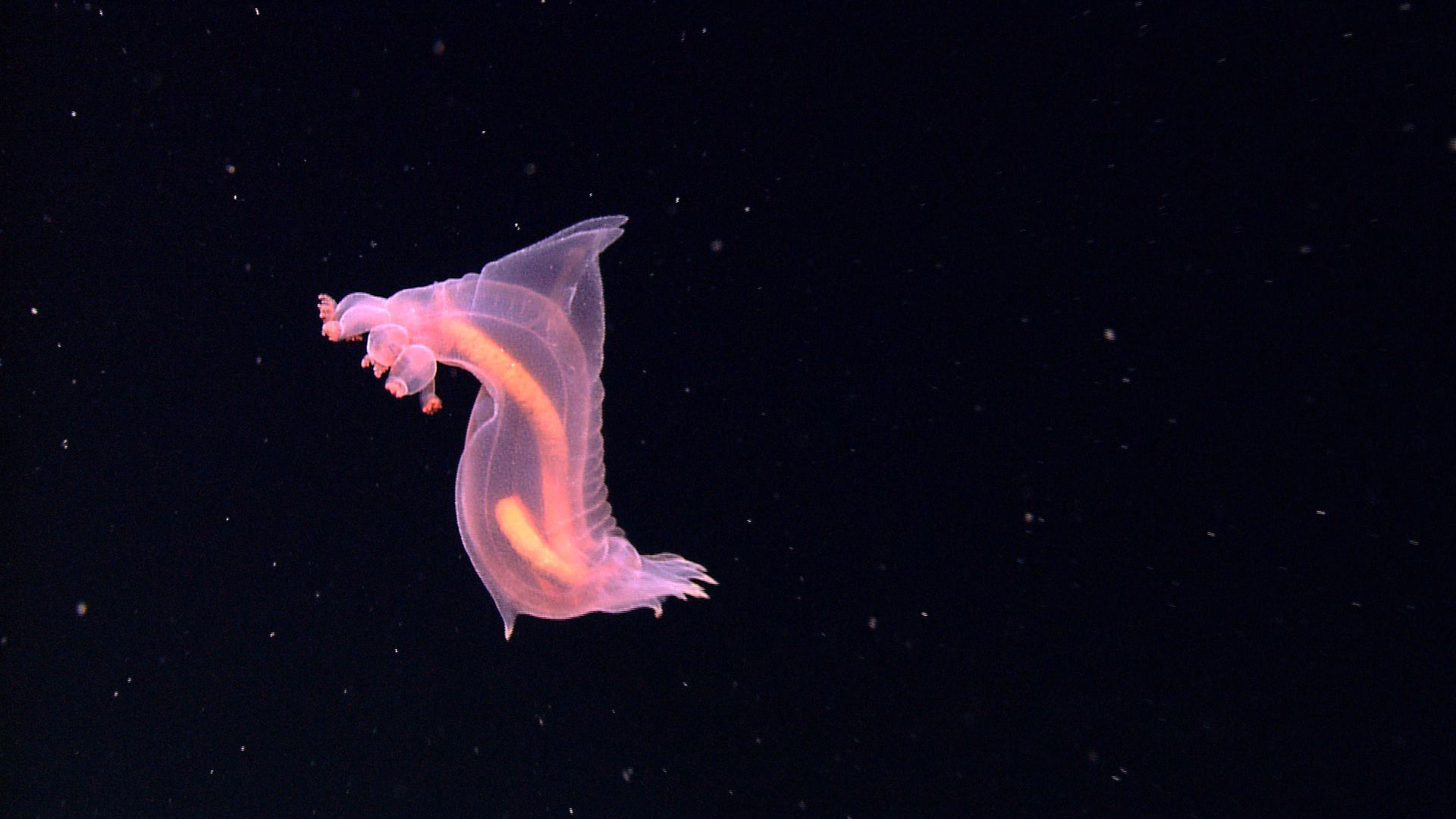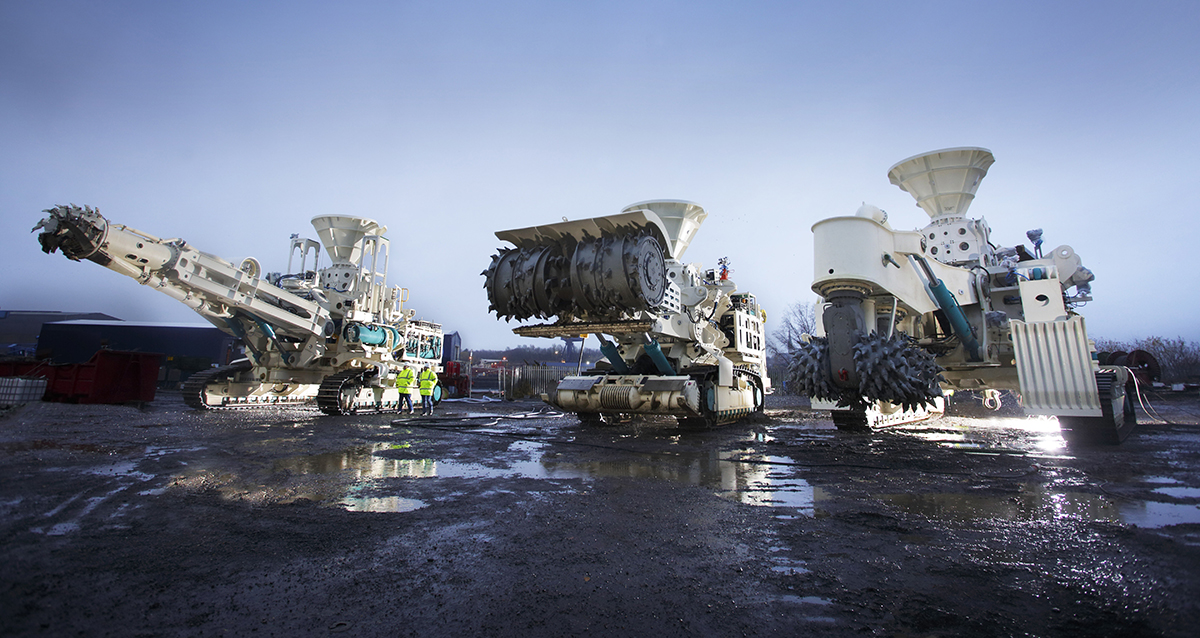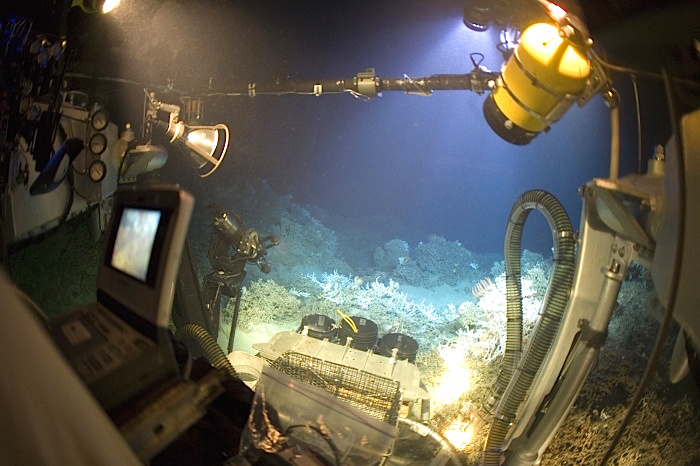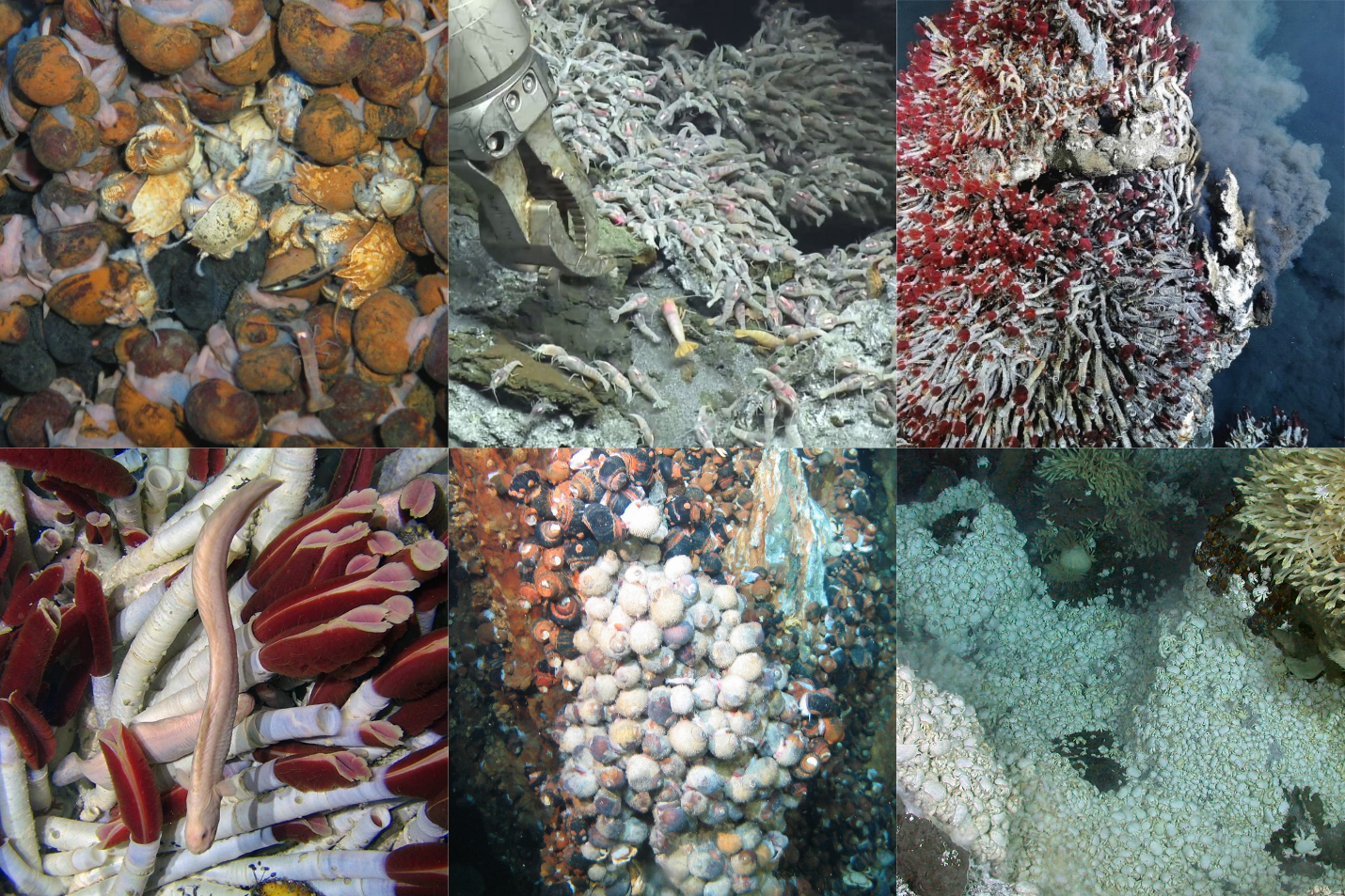MATTHEW O. BERGER on OCEANS DEEPLY | 29 August 2017
“The largest ecosystem on Earth – the deep sea – is one of the least studied even as climate change, plastic pollution and seabed mining threaten its biodiversity.
Those are the findings from a new review of studies on life in the deep sea, the area of the ocean below 650 feet (200 meters) that covers about two-thirds of the planet’s surface.
In reviewing all the papers published on the population genetics of deep ocean invertebrate life since 1970, researchers found that the number of studies – just 77 – is “minuscule in relation to the size of the deep sea.”
That lack of knowledge, they say, has made it difficult to draw broader conclusions about deep-sea biology, limiting the ability to craft effective management and conservation strategies despite what they call the “ever-increasing encroachment of human activity in the deep sea.””
